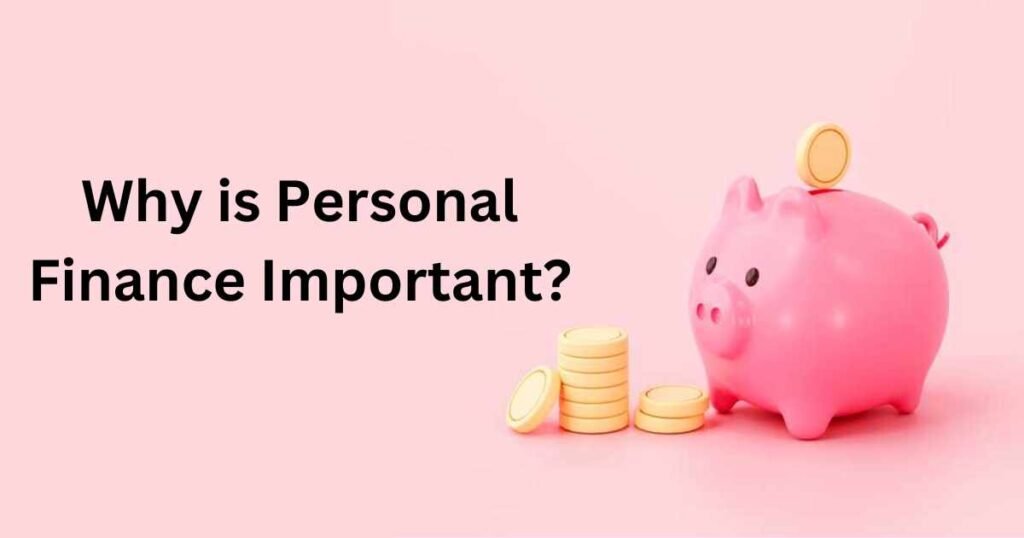Personal finance might sound like a fancy term, but it’s really just about managing your money wisely. It’s like steering a ship through choppy waters – you need a steady hand and a clear direction to reach your destination.
According to the National Institute on Retirement Security (NIRS), 95% of millennials are saving less than the recommended amount
But what many people don’t realize is that personal finance isn’t just about numbers; it’s also about behavior. In this guide, we’ll break down the basics of personal finance and explore why your behavior matters so much when it comes to managing your money.
What is Personal Finance?

Let’s begin with the basics: What is personal finance? Simply put, it’s about how you manage your money – from setting budgets and saving to investing and planning for what’s ahead. Think of it like having a plan for your money, ensuring you’re moving in the right direction.
According to the famous investor and author Warren Buffett, personal finance is simply “how to avoid the disasters” and “to know enough to make good decisions.” This succinct definition emphasizes the importance of understanding financial principles to navigate life’s financial challenges effectively and make informed decisions that lead to financial success.
Personal finance acts as a guide for your financial choices, helping you handle your money well and reach your financial goals smoothly. By understanding the principles of personal finance, you can take control of your financial future and build a stable foundation for yourself.
Why is Personal Finance Important?

Now, you might be wondering why personal finance is such a big deal. The truth is, it’s essential for achieving your financial goals. Whether you want to buy a house, retire comfortably, or simply avoid drowning in debt, personal finance is the key to making it happen.
According to Dave Ramsey, a renowned personal finance expert, “Personal finance is more personal than it is finance.” This succinct statement emphasizes the profound impact that personal finance has on individuals’ lives, highlighting its importance in shaping financial well-being and overall quality of life.
It’s like having a map that shows you how to get from where you are now to where you want to be financially. Understanding personal finance empowers you to make smart decisions about your money and take control of your financial future.ially.
Why is Personal Finance Dependent Upon Your Behavior?

Personal finance is more than just knowing what to do with money; it’s about how you behave when it comes to financial matters. Your spending habits, saving tendencies, and attitudes toward money determine your financial health.
Research suggests that behavior plays a larger role than financial knowledge in achieving financial well-being. By recognizing the influence of behavior on personal finance, individuals can make conscious efforts to develop positive financial habits and attitudes for long-term success.
1. Money Spending and Psychology
Let’s discuss spending money. It’s something we all do – whether it’s buying groceries, paying bills, or treating ourselves. But did you know there’s a lot of psychology behind our spending habits? It’s true! Emotions, peer pressure, and our upbringing can influence how we spend. For example, if you grew up in a family that enjoyed luxury vacations, you might find it difficult to resist spending money on travel as an adult.
Understanding these influences can help us make smarter choices with our finances. By recognizing the factors that drive our spending habits, we can better manage our money and work towards our financial goals.
2. Developing Sound Financial Habits
Now, let’s shift our focus to developing good money habits. Just like keeping up with dental hygiene or maintaining a regular exercise routine, managing your finances requires practice and discipline. Budgeting, saving, and investing are all habits that contribute to building a strong financial base.
It’s akin to constructing a house – a solid foundation is crucial to support the entire structure. While these habits may seem challenging initially, with dedication and persistence, they become ingrained, leading to sustained financial stability and success.
3. Combating Difficulties and Challenges
But what do you do when things don’t go as expected? Life is unpredictable, and sometimes it throws unexpected challenges at us. Whether it’s losing a job, dealing with a sudden medical expense, or struggling with debt, financial hurdles are common.
However, with a positive mindset and careful planning, you can navigate through these difficulties and emerge victorious. Remember, facing challenges head-on is key to overcoming them and achieving financial stability.
4. Creating a Wealth-Building Mindset
Finally, let’s talk about the mindset you need to build wealth over the long term. Building wealth isn’t just about making money – it’s also about having the right mindset. That means setting goals, staying adaptable, and seeking out opportunities for growth.
It’s like planting seeds in a garden – you have to nurture them and watch them grow over time. Developing this mindset is crucial for achieving lasting financial success. So, stay focused and keep working towards your goals, and you’ll see the results over time.
Final Thoughts
So, what’s the key takeaway? Personal finance boils down to smart money management, and your behavior significantly influences your success in this regard. Whether it’s how you spend, save, or think about money, each choice you make shapes your financial journey.
Understanding how behavior impacts personal finance empowers you to steer your finances in the right direction. By making informed decisions and adopting positive financial habits, you can seize control of your money and set the stage for a brighter financial future.
Remember, it’s never too late to start making changes to improve your financial well-being, and every small step you take today can lead to significant improvements tomorrow.
FAQs
What is personal financial behavior?
Personal financial behavior refers to how individuals make decisions regarding their money, including spending, saving, investing, and borrowing. It encompasses the habits, attitudes, and beliefs that influence one’s financial choices.
What is the importance of financial behavior?
Financial behavior is crucial because it directly impacts an individual’s financial well-being and success. It determines how effectively someone manages their money, achieves their financial goals, and navigates through financial challenges.
Why is personal finance depending on your behavior?
Personal finance depends on behavior because it’s not just about knowledge; it’s about how one applies that knowledge in their financial decisions. Positive financial behavior, such as disciplined saving and prudent spending, is essential for sound financial management and achieving financial stability.
What is behavior in financial management?
Behavior in financial management refers to the actions and decisions individuals make regarding their finances. It includes how they handle money, make financial plans, and react to various financial situations. Effective financial management behavior is essential for achieving long-term financial success and security.
